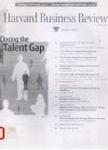版权所有:内蒙古大学图书馆 技术提供:维普资讯• 智图
内蒙古自治区呼和浩特市赛罕区大学西街235号 邮编: 010021

作者机构:Harvard Univ Sch Business Boston MA 02163 USA MIT Sloan Sch Management Cambridge MA 02139 USA
出 版 物:《HARVARD BUSINESS REVIEW》 (Harv Bus Rev)
年 卷 期:1999年第77卷第1期
页 面:70-+页
核心收录:
学科分类:0202[经济学-应用经济学] 02[经济学] 1202[管理学-工商管理] 1201[管理学-管理科学与工程(可授管理学、工学学位)]
主 题:经济竞争/标准 工业/经济学 工业/组织和管理 因特网/经济学 武术 美国
摘 要:Competition on the Internet is creating fierce battles between industry giants and small-scale start-ups. Smart startups can avoid those conflicts by moving quickly to uncontested ground and, when that s no longer possible, turning dominant players strengths against them. The authors call this competitive approach judo strategy. They use the Netscape-Microsoft battles to illustrate the three main principles of judo strategy: rapid movement, flexibility, and leverage. In the early part of the browser wars, for instance, Netscape applied the principle of rapid movement by being the first company to offer a free stand-alone browser. This allowed Netscape to build market share fast and to set the market standard. Flexibility became a critical factor later in the browser wars. In December 1995, when Microsoft announced that it would embrace and extend competitors Internet successes, Netscape failed to give way in the face of superior strength. Instead it squared off against Microsoft and even turned down numerous opportunities to craft deep partnerships with other companies. The result was that Netscape lost deal after deal when competing with Microsoft for common distribution channels. Netscape applied the principle of leverage by using Microsoft s strengths against it. Taking advantage of Microsoft s determination to convert the world to Windows or Windows NT, Netscape made its software compatible with existing UNIX systems. While it is true that these principles can t replace basic execution, say the authors, without speed, flexibility and leverage, very few companies can compete successfully on Internet time. Reprint 99110.